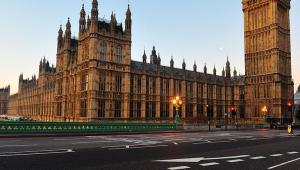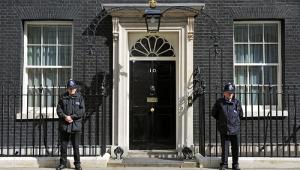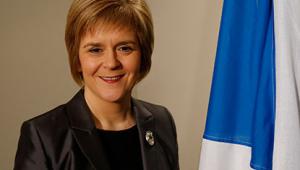Speaking at a school in Midlothian, Sturgeon set out plans that would allow councils to then be able to increase council tax by up to 3% a year from 2017/18.
In addition, the Scottish Government would increase the tax level on the highest four bands of property value by up to £10 a week for top-band taxpayers, generating £100m a year, earmarked for education. This follows the recent defeat in Holyrood of Labour and Liberal Democrat calls for a 1p increase in the Scottish rate of income tax to support schools.
But the measures fall a long way short of the insistence in a report late last year from a cross-party commission, jointly chaired by the Scottish Government and the Convention of Scottish Local Authorities, that the council tax was unjust and “must end”.
That report mooted a new property tax, a land value tax or a local income tax – the last of these being a policy long advocated by the SNP.
In the event, Sturgeon has opted for none of these major reforms, and neither has she sanctioned the politically hazardous recourse of a property revaluation to update council tax bandings. The current valuation dates back to the early 1990s.
The cross-party commission also recommended, as did an earlier COSLA-backed group, that councils be given greater responsibility for raising their own funds, less than 15% of which currently come from local taxation.
Sturgeon said councils would be consulted on assigning a fixed proportion of Scottish income tax to local government, allowing them both to benefit from and to contribute to any future rise in income tax revenues resulting from economic growth.
She said that average council tax bills in all bands would remain lower than in England, and that three-quarters of households would pay no more as a consequence of her proposals. She described the package as “reasonable and balanced”.
Responding to the report, Don Peebles, the head of CIPFA Scotland said it was welcome the Scottish Government propose the creation of a fairer council tax scheme.
“The proposals to increase band multipliers takes a step towards a more progressive local tax system.
“The proposal to link income tax and the local tax system is a progressive and imaginative use of Scotland’s new tax powers. CIPFA will continue to work closely with the Scottish government to champion the cause of fairer progressive taxation."
However, he added that the 3% cap on council tax rises “restricts local decision making and we want to see greater flexibility for councils”.
“The absence of a commitment to revaluation is no surprise since the Commission on Local Tax Reform recognised it was politically challenging,” he stated. “The last revaluation was in 1991, ducking the issue yet again is just storing up problems for the future."
However, COSLA called it “bizarre” and accused the SNP of putting self-interest ahead of real change. President David O’Neill said: “What we have before us today is a damp squib. This is nothing more than fairly poor cover for a very crude power grab. They haven’t even bothered to change the name.”
The Scottish Trades Union Congress called the lack of a revaluation “scarcely credible,” while Labour’s Jackie Baillie said: "It has taken the SNP a decade to deliver tinkering round the edges rather than real reform." Willie Rennie of the Liberal Democrats said the SNP could have put these changes in place nine years ago.
Scottish Conservative leader Ruth Davidson warned of Scotland gaining a high-tax reputation, while Scottish Greens spokesman Andy Wightman said: “The Scottish government has endorsed a regressive tax structure in clear contradiction to their claims to want to be progressive with tax powers.”




















